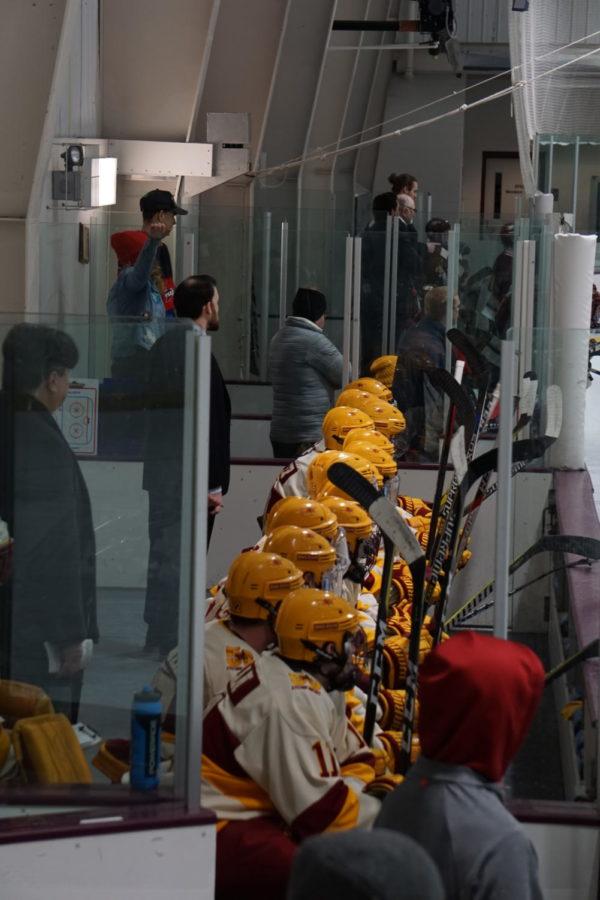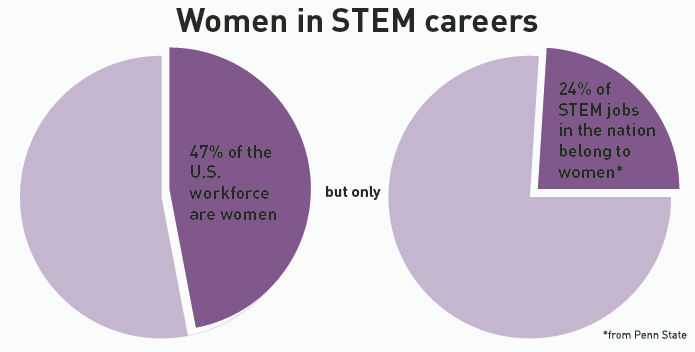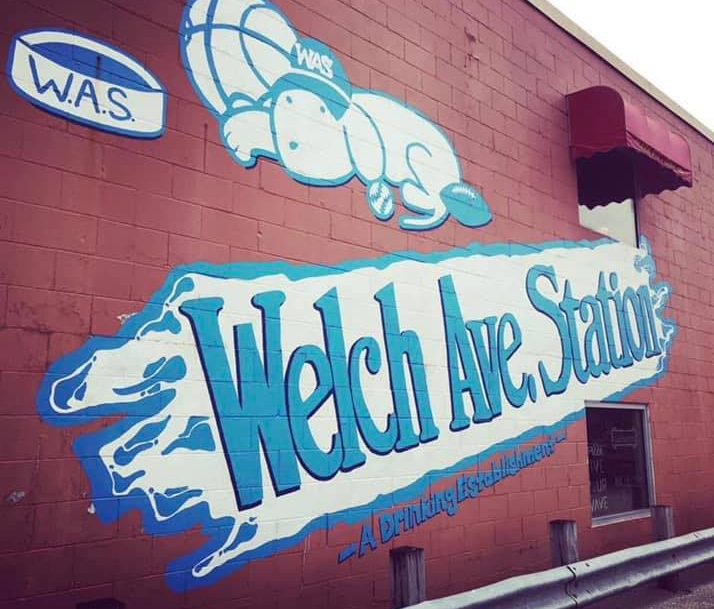Hockey community at Iowa State mourns Humboldt bus crash victims
April 18, 2018
Scott Ismond, Nick Sandy and Mike Dopko each traveled those roads before.
As former Saskatchewan Junior Hockey League players and native Canadians, the three knew what the trips were like. They were long bus rides, sometimes as long as 11 hours, from one hockey-crazed town to the next.
Often times, they’d play cards with their teammates, watch movies or just lay back and fall asleep while the driver carried them to their destinations. Just teenagers pursuing their hockey dreams, some of their best memories were made on those bus trips.
Knowing that they’ve had those experiences made the news of 16 Humboldt Broncos’ players and personnel dying in a bus crash that much more devastating for the three current and former Cyclone hockey stars.
“I remember clear as day that I played games in Humboldt. I rode the exact same highways they did,” Sandy said. “You never once thought getting on a bus that was ever going to happen. You think you’re bigger than everything else on the road and that you’re going to be alright.”
The immediate reaction to the crash was similar across the board. At first, there was stunned disbelief. As more reports filed in, each constantly kept track of the latest updates on social media and through text messages.
Then, when the crash’s severity was revealed, the devastation hit. When it did, it was felt not only for the victims, but just as much for their families as well.
In junior hockey, players from ages 16-21 leave their lives behind to, essentially, make hockey their living. Some have aspirations to go pro, while others try to play collegiately.
Regardless of their reasons, players leave their home lives behind for extended road trips and a chance to play the game they love.
Perhaps the most devastating reality of the crash is that there are parents that let their kids leave home to chase a dream who will never get to see them again, a fact not lost on any of the three.
“I remember when I moved away from [home] at 16 and how hard it was for my parents to let me go play hockey,” Dopko said. “It was tough thinking about those kids’ parents and my parents. That was the first phone call that I made.”
The hockey community is a small and tight-knit one. According to the three, if people didn’t play in the junior leagues themselves, they know someone who did. In their case, not only were all three familiar with Humboldt and the Broncos, but all had their own experiences with the team as well.
In Ismond’s case — the current head coach of Iowa State’s Division II team — even played for them.
Even if it was only for a couple months, his time with the Broncos in 2008 gave Ismond a strong feel for what the team means to the community. In a town of less than 6,000 people, where during Ismond’s time there was a McDonald’s, a few family owned businesses and not much else, life revolved around Broncos’ hockey.
“When a game night came around, it was like Texas high school football,” Ismond said. “The community was decked out in their colors and the arena was to capacity to support their Broncos. It was truly the identity of that community, so to see that news, it shook me.”
In Dopko and Sandy’s cases, each had experience playing in Humboldt against the Broncos. Sandy mentioned Humboldt’s reputation as a “first-class organization” with a storied history, and similarly remembered Broncos games being lively and well-attended.
For Dopko, the tragedy hit even closer to home for the Saskatchewan native. Not only did Dopko have several friends who played Humboldt, but one of the deaths was that of assistant coach Mark Cross, who Dopko knew from his time with the Tisdale Trojans of the Saskatchewan Midget Hockey League and the Estevan Bruins of the SJHL.
Put simply, the three are proof that there’s never much separation from one hockey player to the next. Many players, regardless of where they were born, have similar experiences growing up around the game, and they ultimately make countless connections in their travels.
It’s those connections that give the hockey community a closeness that’s rarely seen in other sports. While that closeness does make the wound from the tragedy that much deeper, it’s ultimately what’s helping with the healing process.
Humboldt has already seen an outpouring of support from all across the world since the accident. From a GoFundMe page that’s raised over $13 million, to NHL players and coaches wearing ribbons with the team’s colors, to even something as simple as leaving hockey sticks outside the front door, the hockey community and its fans are still uniting to pay their respects.
The boys from Humboldt asked people to leave their sticks on the front porch for the Humboldt Broncos that passed away. A few of our members are doing so this week. pic.twitter.com/CbBFYJ9dOK
— Iowa State Theta Xi (@ThetaXiIowaSt) April 11, 2018
Leaving a few #SticksOutForHumboldt pic.twitter.com/MRyd2El9Ey
— San Jose Sharks (@SanJoseSharks) April 11, 2018
Best photo, no words needed. #SticksOutForHumboldt 🇨🇦 pic.twitter.com/JGJja4F9r3
— Kacey (@Kaceyla73) April 10, 2018
That type of support is no surprise to anyone who plays or follows the sport closely.
“It’s been awesome,” Dopko said of the support. “Everyone has rallied around the world, around North America, all over Canada, and it’s been really positive. It’s good to know that there are a lot of good people in this world willing to support through tough times.”
Dopko also added that he hopes that the tragedy doesn’t deter anyone from playing junior hockey or any high level sport in the future. Although he, Ismond and Sandy admit that there will be caution in the back of peoples’ minds when getting on buses, the three also added that the accident was a tragic, freak event that wasn’t the fault of the driver or the conditions.
To that, the three say that although hurt remains and the wound will never fully heal, life does go on. Sandy says that it’s important to remember that those lost were likely seen as heroes to their communities while they were alive, and that it will take a long time for Humboldt and the hockey community as a whole to recover.
However, they’re all attempting to do so the best way they know how: by continuing to play. Ismond pointed out that all of the SJHL teams, including Humboldt, unanimously voted to continue their playoffs this year despite the tragedy.
And just as the teams in the SJHL soldier on, so does the rest of the hockey community.
“It’s a hard time for all, but definitely something to rally behind and move forward,” Ismond said. “Hockey is seen as an opportunity to continue the healing. We’re going to continue to enjoy the sport that we love, play for those that can no longer, and just celebrate the careers that they had.”
















